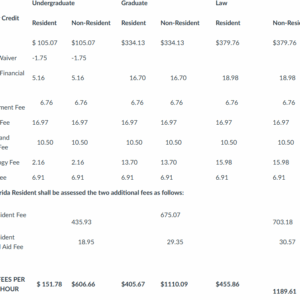| January 19th, 2018
Angela Davis talks prisons, women’s movement and local student activism at FSU
By: journeymagazine

By | Nyasha Baly
The iconic activist from the 1960s is still preaching revolution a half-century later.
Angela Davis was appointed to be the keynote speaker for the Golden Tribe Lecture Series in the Ruby Diamond Concert Hall. Davis is an activist, educator and author who is recognized for battling racism and oppression. She is a public figure in history recognized for her distinctive character in fighting authority with black power. The event, “An Evening with Angela Davis” was an informative presentation lecture from Professor Davis. She expounded upon four key themes that reflected her triumph through political activism and strife. The urgency of resisting the current political circumstances of white supremacy, solidarity with Haitians, solidarity of prisoners, and solidarity with the new women’s movement.
“Racism is deeply embedded in the structures of our society, and only a revolution will allow us to forge an authentic path for justice. There has not been a president who has used the power of the office in such an explicitly racist way in our lifetime,” said Davis.
Florida State University’s Student Government Association organized its 30th annual MLK week featuring Angela Davis as a special guest. Commemorating Dr. Martin Luther King for his illustrious activism in creating social change. “Transforming the Norm Unapologetically” was the visionary theme for MLK week at FSU.
Davis explained how President Donald Trump utilizes his authoritative position in our country executing poor selfless actions as the leader of our free world. She spoke from a nostalgic memory that if people just pretended that they could not see race and engage in an act of color blindness, racism would go away. Connecting her leading point as to why in the 21st century we are only beginning to address issues that should have been addressed in the aftermath of slavery. There was considerable discussion about Haitians being ridiculed by President Trump, buzzing internal aggression through Christopher Johnson who is a Haitian American FSU communications student.
“I am thankful for this presentation by Angela Davis. She spoke about Haitian people being isolated in American society by our very own president and it emotionally affected me. Because I have family still trying to come to America from Haiti,” said Johnson.
Moreover, Davis analyzed the issue of people trying to domesticate the holiday of MLK for sales bargaining. She expressed her disgusts of finding a website that used the federal holiday of Dr. Martin Luther King, Jr. as a day to splurge for online sales shopping.
“That really saddens me, particularly since Dr. King made a point on speaking out against materialism, capitalism, racism and militarism which constitutes as what he saw as the three great threats to justice. We fought so hard for the opportunity to engage in radical acts of dedication to struggle,” said Davis.
Davis visualizes MLK day as a holiday that should not only recognize the work of a single individual but the dedication of understanding the notion of justice represented by Dr. King and others public figures. Honoring all of the activists who stood up to fight for equality in our society. Solidarity was a keyword in her presentation that united the themes: solidarity of prisoners, solidarity with Haitians and solidarity with new women’s’ movement. From her political activist lifetime legacy, she philosophically interpreted all themes to the concept, “to be human is to collectively struggle.” This struck most audience members like Rodnika Cockroft who is a Miami Dream Defender organizer that protested in the prison strike.
“When she talked about Palestine and toxic masculinity and the uprising of women it really spoke to me. Because I feel like women are moving forward, standing up for themselves with the understanding that we can not become our oppressors,” said Cockroft.
In her last words, Davis explained in order to revolutionize the country, we should abolish imprisonment, and think of more effective ways in getting rid of toxic masculinity. Collectively coming together, she said, we can establish a movement to fight for justice because our activism can change the world.





